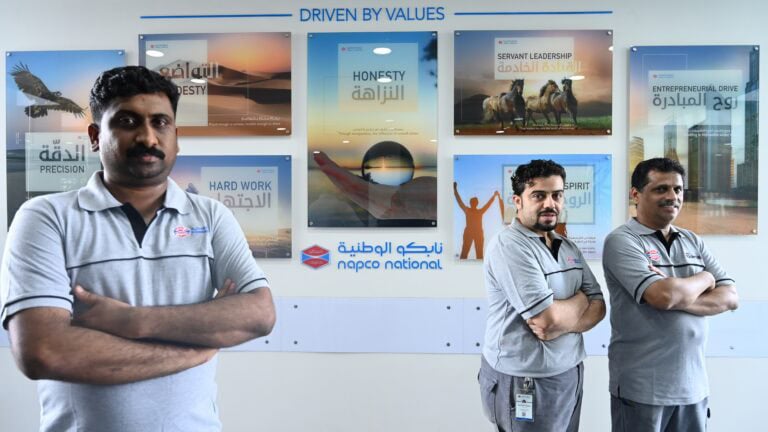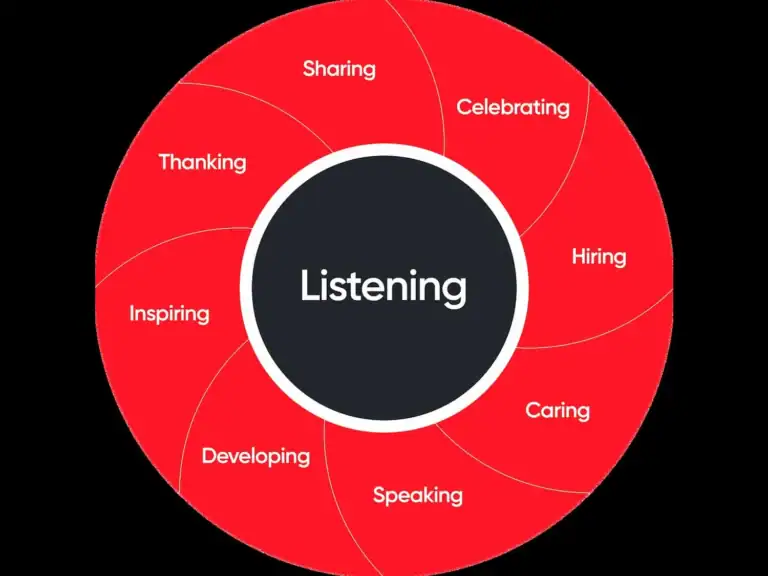How do you increase productivity in the workplace?


Jana Saab
Building a strategic process in the workplace helps maintain employees’ motivation and develop their productivity.
The life of organizations has changed after the pandemic, when hybrid and remote work were introduced.
Regardless of the place of work, the relationship between organizations and employees is “win-win.”. This means that employees need to feel that they are appreciated, well paid, and considered. On the other hand, organizations need to achieve high revenues and conversions.
What if both accomplished this? Having a healthy and supportive work environment is fundamental. It opens the doors to innovation, productivity, and employee retention.
Winning organizations in KSA’s best workplaces in retail, biopharmaceuticals, and transportation managed to create an emotionally and psychologically healthy workplace, where 82% of employees say they work in a positive environment, which is 30% more than those in typical workplaces.
Furthermore, people in the top workplaces in KSA are willing to work extra hours in their jobs; 87% of them believe in doing that, which boosts loyalty to their organization. This is the antithesis of typical workplaces, where they yielded only 52%.
Here are the best practices that help increase productivity in the workplace.
Avoid multitasking.
Multitasking can lead to high levels of distraction. One can say, “I am a multitasker.” However, this may not be helpful. This is because you are jumping from one task to another, where you are interrupting yourself, thus affecting your productivity. In this case, you can prioritize tasks and focus on one of them.
Foster cooperation.
Supporting cooperation and communication in the organization strengthens employees’ bonds. For example, they can cooperate by exchanging information to come up with innovative ideas. This also encourages diversity because employees come from different backgrounds. Indeed, this helps in solving problems and making comprehensive decisions.
The Great Place to Work® Trust Index© Survey revealed that 86% of the employees in the best workplaces in KSA feel that their management is open and accepts new ideas.
Offer training and mentoring programs.
Training employees in the trends and best practices of the market enhances their skills. They also trigger motivation and confidence within the employee. Through guidance and support, successful plans are set. Additionally, when leaders invest in such professional programs, they maintain employee retention.
Create a culture you are proud of!
Get started with Great Place to Work® to earn a certification of being a great place to work. Reach out to us today to have a position at the top of the list of the best workplaces.
Get your company Certified™️

HR Trends in the Middle East 2026
What did 2025 teach us about people management, and what is on the outlook for 2026? From the disruptive forces of AI and skills-based hiring

What Makes Napco a Great Place To Work®? It Starts with Family Spirit and Ends with Impact
What Makes Napco a Great Place To Work®? It Starts with Family Spirit and Ends with Impact About Napco National Napco National has been part of the Saudi industrial landscape since 1956,

9 High-Trust Leadership Behaviors That Build Great Workplaces
Caring, Celebrating, Developing, Employee Experience, Hiring, High-trust leadership, Inspiring, Leadership & Management, Listening, Managerial Communication, Sharing, Speaking, Thanking Every employee should take these behaviors to heart whether or not they are people leaders. I often get asked

The Evolution of Workplace Culture: Why It Matters More Than Ever in 2025
One universal workplace experience is the emotional imprint left by an organization—its energy, trust, and sense of belonging. Although experts may agree on what constitutes

How Purunity Embeds Goodness into Work and Culture
People go where there is pride in the work they do. At Purunity, this sense of pride stems from our core mission: driving innovative and

Powerful Strategies to Cultivate DEI in Omani Workplaces
DEI is not only a buzzword! Developing a diverse, equitable, and inclusive work environment shows that leaders care about their employees, appreciate, and respect their
